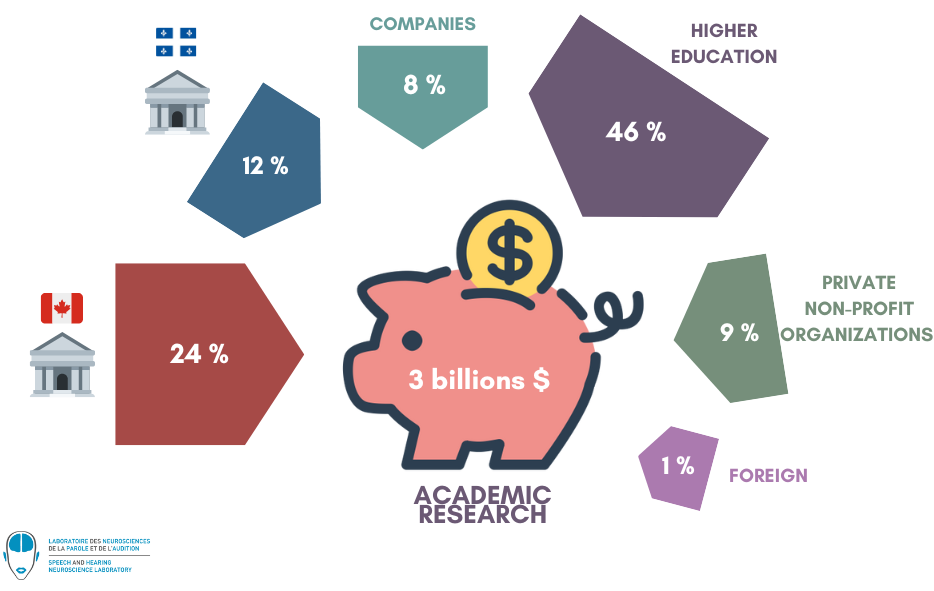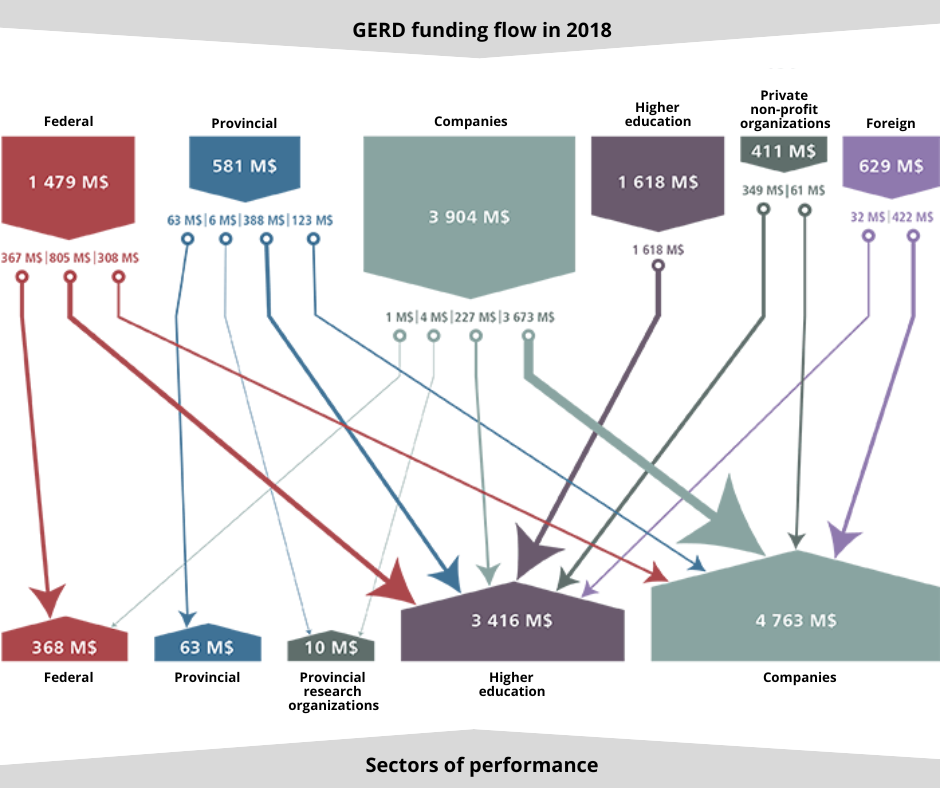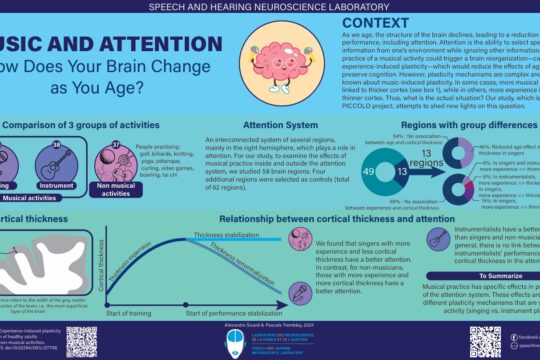In Quebec, scientific research is largely carried out in universities, and to a lesser extent, in CEGEPs. The research carried out in these academic institutions, mobilizes thousands of researchers, research professionals and students. According to the Fonds de recherche du Québec (FRQ), the annual budget for university research is approximately $3 billions. But who funds all these efforts? And why is this an important question?
Research must be carried out independently, that is, free from pressures and with no other objective than to advance knowledge. It should not be at the service of individual, political or private interests. For example, if a study shows that a new drug does not work better than its competitor, this result must be published, even if the pharmaceutical company that developed the drug would rather not. In the same way, if a study reveals that a government program does nothing to solve the social problem it was attacking, scientists have a duty to publish this result whether or not it pleases the politicians or even people in general. This is the only way for knowledge gaps to be filled and for the society to progress.
One way to preserve the independence of researchers is to ensure that research funding sources do not interfere with the conduct of the research. Scientists are required to disclose their sources of funding in scientific publications, as well as all their conflicts of interest, even if the requirements in this regard vary from one scientific journal to another. Research can therefore evaluate how independent the research process is, for each study.
In Quebec, university research is largely funded by publicly funded agencies that have implemented rigorous systems to preserve the independence of researchers.
The figure below, adapted from data provided by the FRQ, illustrates the sources of funding for academic research. We note that approximately 47% of research is funded from university budgets. Another 36% comes from provincial or federal funds.

In Quebec, the Fonds de recherche du Québec (FRQ) are divided into 3 research funds, each operating in a specific sector:
1) Nature and Technology (FRQNT)
2) Health (FRQS)
3) Society and Culture (FRQSC).
At the federal level, there is a similar 3-council organization:
1) the Natural Sciences and Engineering Research Council of Canada (NSERC)
2) the Canadian Institutes of Health Research (CIHR)
3) the Social Sciences and Humanities Research Council (SSHRC).

Thus, approximately 83% of academic research is financed by public funds. This is good news! Why? Because the universities and the various federal and provincial research funds have set up rigorous systems for the evaluation of research projects by scientists. A system which is not flawless, but which aims to preserve the freedom of academic research. The evaluation process is independent of politicians, pressure groups and companies, who cannot interfere in the conduct and disseminating of funded research.
Politicians can nevertheless intervene in the funding of research, for example by identifying “priority sectors”, or by modifying the annual amount allocated to research funds (in Canada for instance, the CIHR has a much larger budget than NSERC); but they cannot interfere in the selection of projects to be funded, in the conduct of funded projects or in the disclosure of the research results. Scientists who work in an academic environment are therefore largely sheltered from pressure and can conduct research independently.
On the other hand, not all types of research have the same chance of being funded, even by public funds, and the situation is similar almost everywhere in the world to varying degrees. The evaluation criteria set up by funding agencies can in fact favour certain types of research to the detriment of other approaches deemed less adequate or of questions deemed to be of lower priority. One of the major issues in Canada is indeed to promote and fund so-called “fundamental/basic” or “theoretical” research, which aims to advance knowledge in specific fields without immediate practical impact. The current trend is to promote applied research, which aims to find practical solutions to concrete problems. Even if this type of research is essential, applied research builds on knowledge generated by basic research, therefore funding of basic research is also extremely important.
As public money is not sufficient, academic research is also funded at the level of approximately 9% by private non-profit organizations (e.g., the Heart Foundation, the Alzheimer Society of Canada, the Drummond Foundation), 8% by companies and 1% by foreign countries, especially through large multi-site projects and partnerships, for example with the National Institute of Health (NIH), a major federal agency for medical research in the United States. Private funding is necessary since public funds are not sufficient, but raises issues, particularly regarding preserving the independence of researchers.
Further readings:
For more information, and to obtain the complete picture about research as a whole, visit this site: https://www.scientifique-en-chef.gouv.qc.ca/en/key-figure/composition-rd-en/flux-de-la-dird-le-poids-des-differents-acteurs/
See as well:
Source:

(Figure in millions of $)
Suggested readings:



